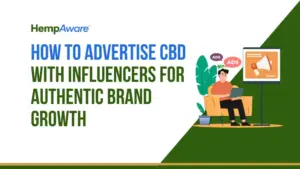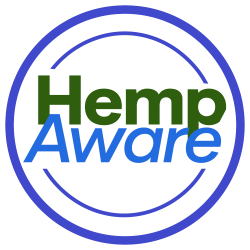The Right Disclaimers: Non-negotiable for CBD Marketing
CBD is quite popular right now. One cannot argue much against it. But now that CBD is so popular, the magnifying lens is always vigilant. Should you be experimenting with CBD advertising, front and center should be a cbd marketing compliance checklist in your arsenal. Declared statements are not afterthoughts. They foster openness, help to create consumer trust, and help to keep authorities away. Whether it’s your Instagram bio, that email blast, or the footer on your sloppy new website, appropriate disclaimers are not debatable.

Only partly delineated by scientific evidence are CBD’s effects. CBD is a chemical under investigation according to the FDA. Any health declaration or benefit claim could cause you problems. While officials want the facts, consumers want hope. Now moving forward toward useful advice.
Every CBD Brand Cannot Avoid Three Disclaimers
Though everyone enjoys a shortcut, skimping on legal language is not among them. These three disclaimers should accompany your CBD brand wherever your message finds expression.
Starting first with the FDA disclaimer. Simple, but non-negotiable. There is no intention of this product diagnosing, treating, curing, or preventing any ailment. Repeat that like a mantra and put it whenever you highlight a benefit.
Second, the “not for kids or pregnant women” disclaimer. Most studies on CBD ignore at-risk groups entirely. Many products say: “Not intended for use by pregnant or nursing women” and “Not for sale to persons under the age of 18 (or 21, depending on location).” Skirting this increases your target weight.
Finally, the “consult a healthcare provider” nudist hint. Though it serves as a guardrail, it reads as friendly advice. Simply wise—and it helps maintain your material compliant—is urging consumers to consult medical experts before utilizing CBD.
Allow these to transcend your product label. Whether they are Facebook advertisements, banners, blogs, or something else entirely, squeeze them into every online and offline conversation.
Omnichannel Marketing: Same Rules for Every Channel
Social media bursts quickly. Thus, when disclaimers are omitted, compliance problems follow. Let your TikHub dance or influencer yell out skip important information. Although hashtags are showy, “#ad” and required disclaimers must be right at home in your content.
Neither can email campaigns avoid these either. Sending a lovely advertising message without an FDA disclaimer is inviting fate. Websites come under even more criticism; every product page and instructional piece should emphasize that what you offer isn’t gospel, only information.

Each brick-and-mortar store, event booth, even product sampling should highlight the suggested disclaimers. Regulators want complete openness even if the good is free. Right out into your shelf cards, packaging, hanging tags.
Typical CBD Marketing Mistakes That Could Damage Your Brand
CBD runs a minefield of compliance mistakes. Some people cross the line without seeing it. Others try to pull a quick one and find themselves on the incorrect side of a warning letter. Walking a straight path maintains your company’s reputation and is not only good karma.
Health Claims: The Zone of No Go
Making medical or therapeutic promises is the biggest mistake CBD marketers make. Saying your formula “reduces anxiety” or “relieves pain” seems benign. Again, consider. That summarizes the FDA enforcement headlines.
Many companies have been warned by the FDA for misbranding CBD as a miracle medicine. If someone says your product cured a sickness, even publishing client testimonials could land in dangerous ground. Review such materials to eliminate medical jargon. Keep your language for general wellness. General comments about leisure or supporting good living seem a bit safer than strong medical advice.
Badges, Seal, and False Icons
Nobody hates a confidence-boosting seal or a gold sticker. Don’t pretend, though, until a reputable certifying authority has approved your goods. The “GMP-certified” emblem should not show unless you really followed a proper procedure. Lab-tested labeling calls for current, batch-specific outside third-party proof.
Steer clear of symbols implying FDA approval. The agency grants no free pass or blessings to any CBD product. One could read even simple leaves or cross symbols as suggesting medical approbation. Although your marketing designer may dread the day you discovered this, always double-check before releasing.
Insufficient Clarity and Lack of Transparency
Transparency builds confidence; ambiguity generates legal problems. Regulators will examine harder at your sourcing, production techniques, or substances if you are unclear about them. Glib words like “natural, pure, or all-organic,” must be exact and provable.
QR codes leading nowhere or to broken links score as deceptive. Batch results buried behind a paywall or not even available? That raises inviting suspicion. Share specifically your suppliers, testing procedures, and what exactly consumers are injecting into their bodies.
Third-party Endorsements and Influencers
Many companies lap up celebrities, social media stars, even well-known doctors. Ignoring these relationships runs all kinds of dishonesty risks. Any compensated collaboration or promotional relationship must be clearly visible according to the FTC. Not cut it to slip a #sponsored or #ad into the third or fourth line of a description.
You still answer if influencers assert claims outside of your permitted script. Track their postings, teach them, and be ready to quickly address mistakes. Regulators have long memories and will follow brand infractions back to their source.
Elevating CBD as a Dietary Supplement
The legal murky area regarding CBD complicates supplement claims. Under the 1994 Dietary Supplement Health and Education Act, CBD does not now have FDA clearance as a dietary additive. Still, many firms name their tinctures dietary supplements in error.

Steer clear of the term “dietary supplement” unless you have followed the correct procedures; the CBD business just isn’t there yet. You can concentrate on botanical combinations, hemp extract, or cannabinoids. But “supplement” can set off an audit on unethical marketing strategies.
Geographic Limitations and Cross-Border Transactions
Federal guidelines are strict, but various states complicate matters even further. While some states forbid edible CBD outright, others authorize it in limited capacity. While topical CBD might pass, labeling and marketing guidelines change with new legislation. Mailing CBD products to Idaho, South Dakota, or other foreign markets could be flatly illegal.
Ignorance of area delivery restrictions or careless shipment can cause your label to be deceptive and result in penalties. Review this often and always stress where your CBD products can and cannot be marketed.




